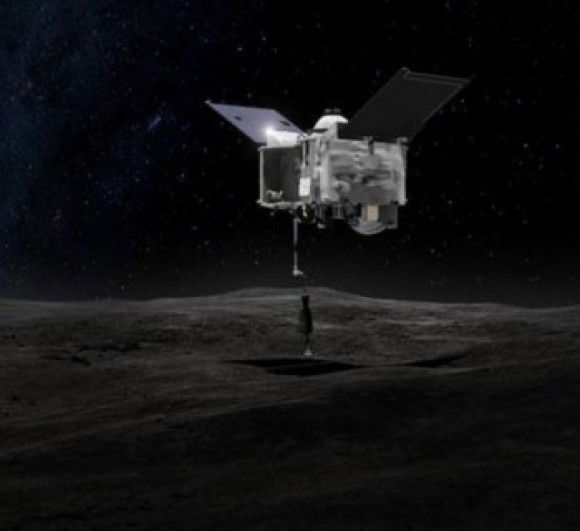Headlines
NASA launches sampling mission to potentially dangerous asteroid

Washington, Sep 9: NASA on Thursday launched its first mission to bring back samples from a potentially dangerous asteroid that could collide with Earth.
The Origins, Spectral Interpretation, Resource Identification, Security-Regolith Explorer (OSIRIS-REx) spacecraft lifted off atop an Atlas V rocket at 7:05 p.m. EDT (4.35 a.m. Friday, India time) as planned from Cape Canaveral Air Force Station in Florida, beginning a journey that could revolutionise our understanding of the early solar system, NASA said.
"We're very excited about what this mission can tell us about the origin of our solar system, and we celebrate the bigger picture of science that is helping us make discoveries and accomplish milestones that might have been science fiction yesterday, but are science facts today," said NASA Administrator Charles Bolden.
The $800 million mission's main goal is to collect a small sample of rocks and surface soil from Bennu that finds a place in NASA's list of Potentially Hazardous Asteroids.
Asteroids like Bennu are remnants from the formation of our solar system more than 4.5 billion years ago. Scientists suspect that asteroids may have been a source of the water and organic molecules for the early Earth and other planetary bodies.
An uncontaminated asteroid sample from a known source would enable precise analyses, providing results far beyond what can be achieved by spacecraft-based instruments or by studying meteorites.
Although the odds are very low, scientist have calculated that Bennu -- which is the size of a small mountain -- may impact Earth sometime between 2175 and 2199.
If all goes according to plan, OSIRIS-REx will arrive in August 2018 and spend the next two years photographing and mapping the asteroid's surface to better understand its chemical and mineralogical composition, including selecting the sample site.
Then, in July 2020, the spacecraft will touch the asteroid for only three seconds to collect at least 60 grams of loose rocks and dust using a device called the Touch-and-Go Sample Acquisition Mechanism and store the material in a sample return capsule.
OSIRIS-REx will return the sample to Earth in September 2023, when it will then be transported to NASA's Johnson Space Center in Houston for examination.
The OSIRIS-REx mission will be the first US mission to carry samples from an asteroid back to Earth and the largest sample returned from space since the Apollo era.
"It's satisfying to see the culmination of years of effort from this outstanding team," Mike Donnelly, OSIRIS-REx project manager at NASA's Goddard Space Flight Center in Greenbelt, Maryland, said.
"We were able to deliver OSIRIS-REx on time and under budget to the launch site, and will soon do something that no other NASA spacecraft has done - bring back a sample from an asteroid," Donnelly said.

5 hours ago
Trump softens stance on H-1B visa reform, says US needs to "bring this talent" as it can't rely on long-term unemployed

5 hours ago
India and Vietnam discuss ways to enhance defence, shipbuilding cooperation

5 hours ago
EAM Jaishankar holds talks with US Secretary of State Rubio in Canada

11 hours ago
TN CM Stalin congratulates Art director Thota Tharani for Chevalier Award

11 hours ago
Farah Khan takes a dig at friend Juhi Chawla on her birthday

11 hours ago
Krystle D’Souza opens up on her character’s growth in ‘First Copy 2’

11 hours ago
Florence Pugh suffered 6 months of depression after ‘Midsommar’

11 hours ago
Shilpa Shetty relives her ‘Baazigar’ memories with Shah Rukh Khan as film completes 32 years

11 hours ago
Sayani Gupta reveals why rat was her spirit animal in ‘Delhi Crime 3’

11 hours ago
Trailer of Allari Naresh’s horror-thriller ‘12A Railway Colony’ packs a punch!

11 hours ago
Dharmendra has gone home fully satisfied and is in a stable condition, reveals doctor from Breach Candy Hospital

12 hours ago
Parakamani theft case: SIT continues questioning ex-Andhra Police officers

12 hours ago
Bihar gears up for counting on Nov 14; three-tier security in place at 46 centres






















